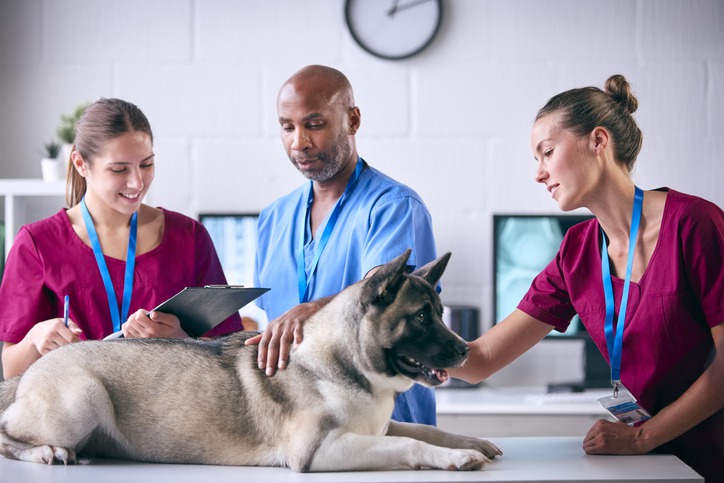How to Spot a Reputable Veterinary Practice: Red Flags and Best Practices

Finding a good veterinary practice can feel like a daunting task, especially when it comes to ensuring our furry friends get the best care possible. Let’s be honest, our pets are family, and we want nothing but the best for them. But how can we determine if a vet is reputable? What should we look out for? Let’s break down some red flags and best practices to help you make an informed decision.
Spotting a Reputable Veterinary Practice
So, you’re ready to find the right vet for your pet. The million-dollar question is, how do you know if a practice is reputable? Here are some practical steps:
Check for Proper Accreditation and Licensing
First, make sure relevant authorities accredit the veterinary clinic. In the United States, for instance, look for accreditation by the American Animal Hospital Association (AAHA). This ensures the clinic follows specific standards of care. Also, check that all veterinarians are licensed to practice in your state.
Visit the Clinic
Don’t simply rely on online reviews—although they’re helpful. Take the time to visit the clinic. Is it clean and well-maintained? Does the staff seem caring and attentive? Pay attention to how they interact with the animals and owners. A reputable practice will have a welcoming environment.
Evaluate the Services Offered
Choose a vet that offers a wide range of services. A well-rounded practice should provide preventive care, emergency services, and specialty treatments. If they offer advanced veterinary services like surgeries or specialized diagnostic testing, it’s a good indicator of a highly skilled team.
Ask About Emergency Care
Find out how the vet handles emergencies. Do they offer 24/7 emergency services, or do they refer to another clinic? A reliable clinic will have a clear plan for emergencies and will communicate this to you openly.
Read Reviews and Ask for Recommendations
Online reviews and personal recommendations can be incredibly insightful. Look for consistent mentions of good experiences, caring staff, and successful treatments. Don’t hesitate to ask friends and family for their recommendations as well.
Red Flags to Watch Out For
Poor Communication
If the vet or staff are difficult to reach, unresponsive, or fail to explain treatments and procedures clearly, that’s a major red flag. Good communication is essential for a trusting relationship between you and your vet.
Unclean or Disorganized Facilities
If the clinic appears dirty or disorganized, it’s a clear sign that they may not prioritize hygiene and order, essential elements in any medical environment. This extends to the waiting areas, exam rooms, and even the operating rooms.
High Staff Turnover
Frequent staff changes can indicate underlying issues with management and can affect the quality of care your pet receives. A stable team often reflects a positive work environment and reliable care for your pet.
Pressure to Buy Products
While it’s normal for vets to recommend certain products, be wary if you feel pressured to buy expensive products or treatments that don’t seem necessary. A good vet will prioritize your pet’s health over sales.
Best Practices for Choosing a Vet
Research and Shortlist
Start by researching veterinary clinics in your area and making a shortlist of potential candidates. Look at their websites, read reviews, and get a feel for their services and values.
Schedule a Meet and Greet
Once you’ve narrowed down your list, schedule a meet-and-greet with the vets. This is your opportunity to ask questions about their experience, services, and approach to pet care. Ensure you feel comfortable with their communication style and expertise.
Evaluate Their Diagnostic Capabilities
Advanced diagnostic tools are a good sign of a high-quality practice. For example, if a clinic offers comprehensive veterinary diagnostic testing in Egg Harbor Township, it shows they are equipped to handle complex health issues.
Personalized Care Plans
Look for a vet who offers personalized care plans for your pet. One-size-fits-all approaches often fall short of addressing specific health needs. A good vet will tailor their care based on your pet’s age, breed, and medical history.
Ask About Communication Channels
Find out how the clinic communicates with pet owners. Do they offer online portals, email updates, and easy-to-reach phone lines? Transparent communication channels are a sign of a proactive and engaged veterinary practice.
Observe the Interaction with Your Pet
Pay attention to how the vet interacts with your pet during the appointment. Do they handle your pet with care and patience? A caring and gentle approach can ease your pet’s anxiety and is a good indicator of a compassionate vet.
Look for Continuing Education
Veterinary medicine is constantly evolving, and it’s essential that vets stay up-to-date with the latest advancements. Ask if the clinic encourages ongoing training and education for its staff. This commitment to learning reflects a dedication to providing the best possible care for your pet.
Special Services and Expertise
Internal Medicine
If your pet requires specialized care, ensure the clinic has experts in internal medicine. A reliable veterinary internist can diagnose and treat complex medical conditions, providing peace of mind that your pet is in good hands.
Comprehensive Checkups
Regular checkups are essential for maintaining your pet’s health. Opt for clinics that offer thorough wellness exams. For instance, full cat checkup services at Newkirk Family Veterinarians ensure that your feline friend receives comprehensive care tailored to their specific needs.
Emergency Services
Unexpected health issues can arise at any time. A veterinary clinic that offers reliable emergency services demonstrates a commitment to your pet’s well-being. Make sure their emergency services are easily accessible and that their staff is trained to handle urgent situations.
Building a Lasting Relationship with Your Vet
Consistency in Care
Once you find a reputable veterinary practice, consistency in care is key. Regular visits to the same vet allow them to build a detailed medical history for your pet, leading to more accurate diagnoses and treatment plans.
Open Communication
Maintain open communication with your vet. Don’t hesitate to ask questions, seek advice, and discuss any concerns you have about your pet’s health. Building a trusting relationship with your vet can significantly impact your pet’s overall well-being.
Follow Their Recommendations
Your vet has your pet’s best interests at heart. Follow their recommendations for preventive care, vaccinations, and treatments. Trusting their expertise will help ensure your pet remains healthy and happy for years to come.
Stay Informed
Stay informed about advancements in veterinary medicine and new treatments available for your pet. A well-informed pet owner can make better decisions about their pet’s care and collaborate effectively with their vet.
Wrapping Up
Finding a reputable veterinary practice may require some effort, but it’s worth it for the sake of your pet’s health. From checking accreditation and evaluating services to paying attention to communication and hygiene, there are several factors to consider. Trust your instincts and don’t settle for less when it comes to your furry family member’s care. By following these best practices and keeping an eye out for red flags, you’ll be well on your way to finding a vet that both you and your pet will love.


